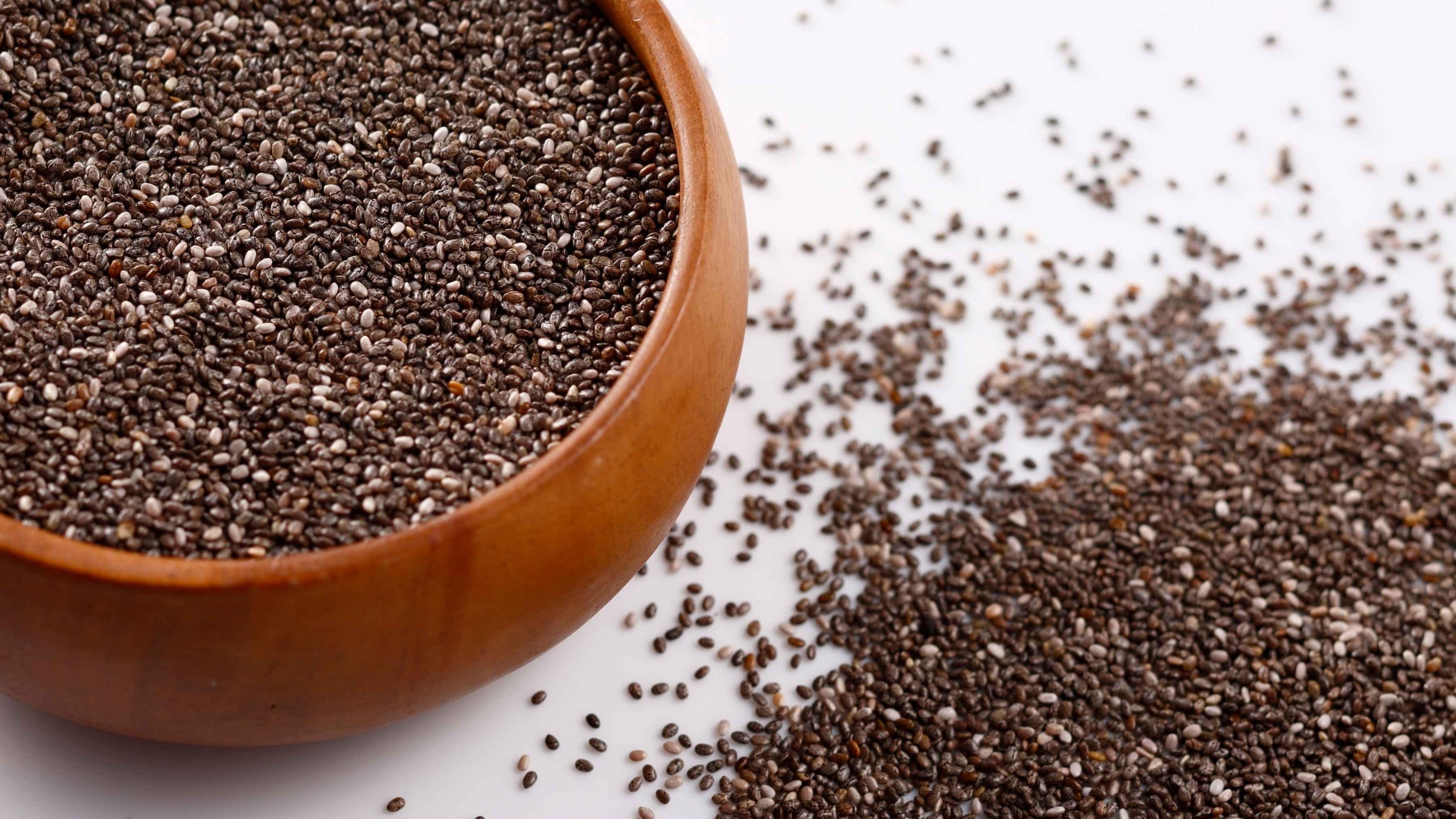Chia seeds have surged in popularity recently, hailed as a superfood packed with nutrients beneficial for overall health and glowing skin. From boosting digestion to providing omega-3 fatty acids, chia seeds offer many advantages. However, while these tiny seeds are nutrient-rich, consuming them incorrectly or in excessive amounts can lead to unwanted side effects. Before you add chia seeds to your daily diet, it's essential to understand both their benefits and potential risks.
01What Are Chia Seeds? -
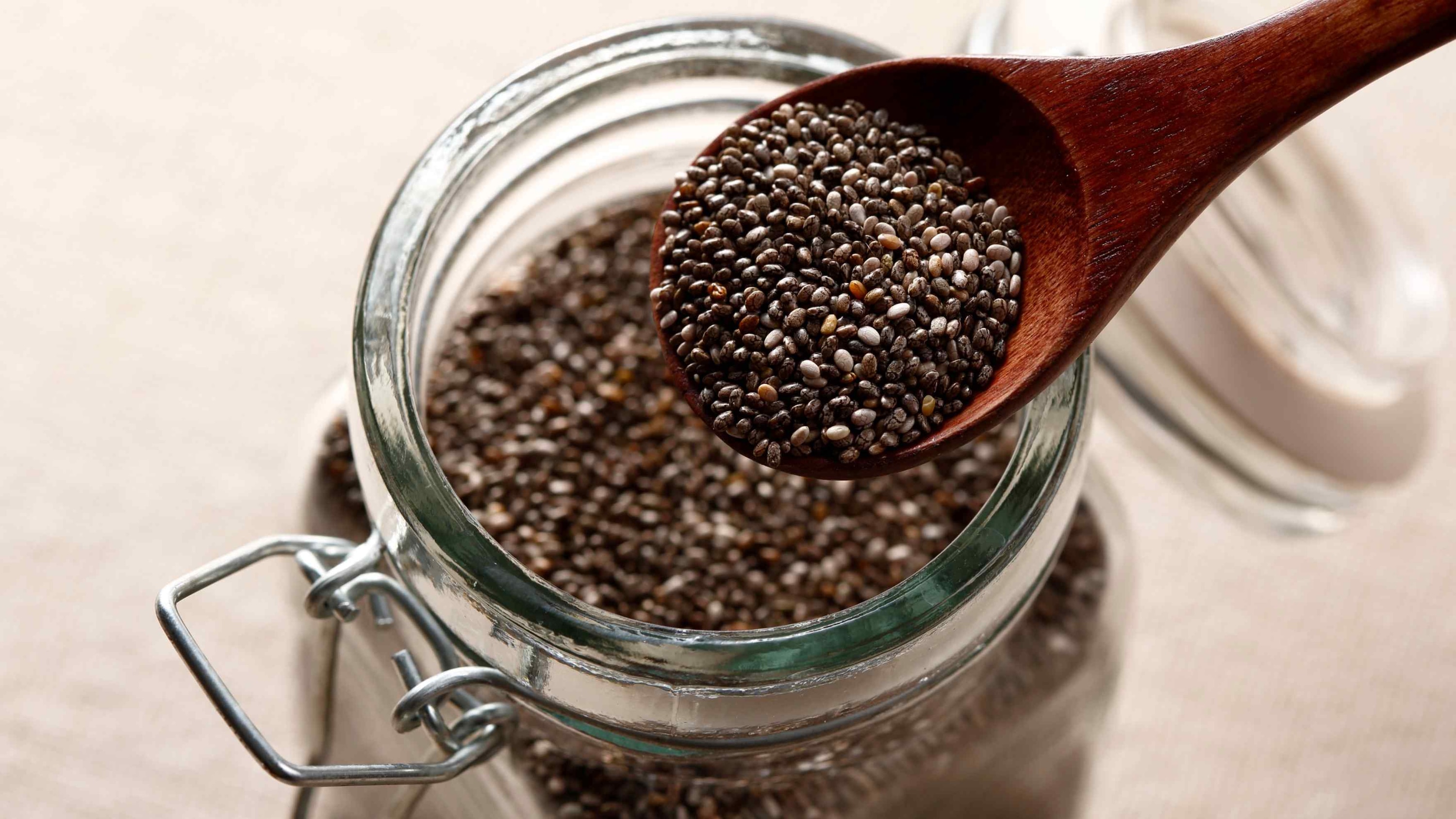
Chia seeds are tiny black or white seeds derived from the Salvia hispanica plant, native to Central America. Known for their high fiber, protein, omega-3 fatty acids, and antioxidant content, they are commonly added to smoothies, cereals, and baked goods.
02Benefits of Chia Seeds -
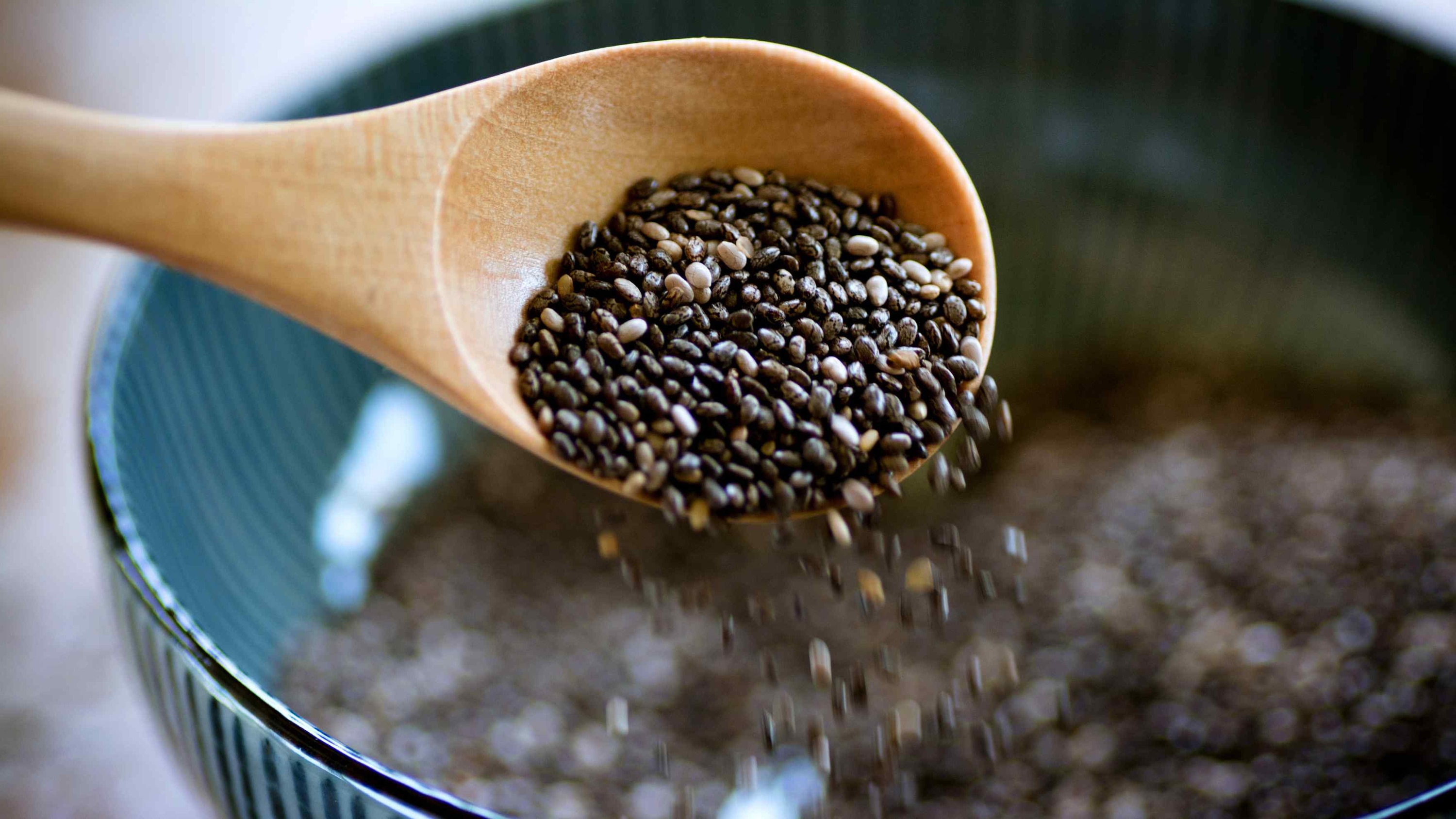
Chia Seeds may be tiny, but there are many benefits of chia seeds. These powerful nutrients that offer a range of health and beauty benefits. Here's why you might want to add them to your diet:
- Rich in Omega-3 Fatty Acids These healthy fats support heart health, reduce inflammation, and promote glowing skin.
- High in Fibre Great for digestion and gut health, chia seeds help you feel full for longer—ideal for weight management.
- Packed with Antioxidants Antioxidants help fight free radicals, slowing signs of ageing and supporting overall cellular health.
- Excellent Source of Plant-Based Protein They're perfect for vegetarians and vegans looking to boost protein intake.
- Supports Hydration Chia seeds can absorb 10–12 times their weight in water, making them great for maintaining hydration during hot days or workouts.
- Stabilises Blood Sugar Their high fibre content can help prevent blood sugar spikes, making them a good choice for managing energy levels.
03Side Effects of Chia Seeds
Here are 10-12 detailed potential side effects to keep in mind:
- Gastrointestinal Distress -

Cause: Chia seeds are extremely high in fibre, which can be tough on the digestive system when consumed in excess or without enough water.
Symptoms: You may experience bloating, gas, abdominal cramps, or even constipation.
- Choking Risk -

Cause: Dry chia seeds rapidly swell when they come into contact with liquid, which can pose a risk if they're eaten without being soaked or followed by enough water.
Symptoms: Trouble swallowing, a feeling of blockage in the throat or oesophagus—particularly when consumed dry.
- Allergic Reactions -
Cause: Although uncommon, some individuals may have an allergy to chia seeds or related proteins.
Symptoms: Itching, skin rashes or hives, swelling of the lips or tongue, and in rare cases, difficulty breathing.
- Blood Thinning Effects -
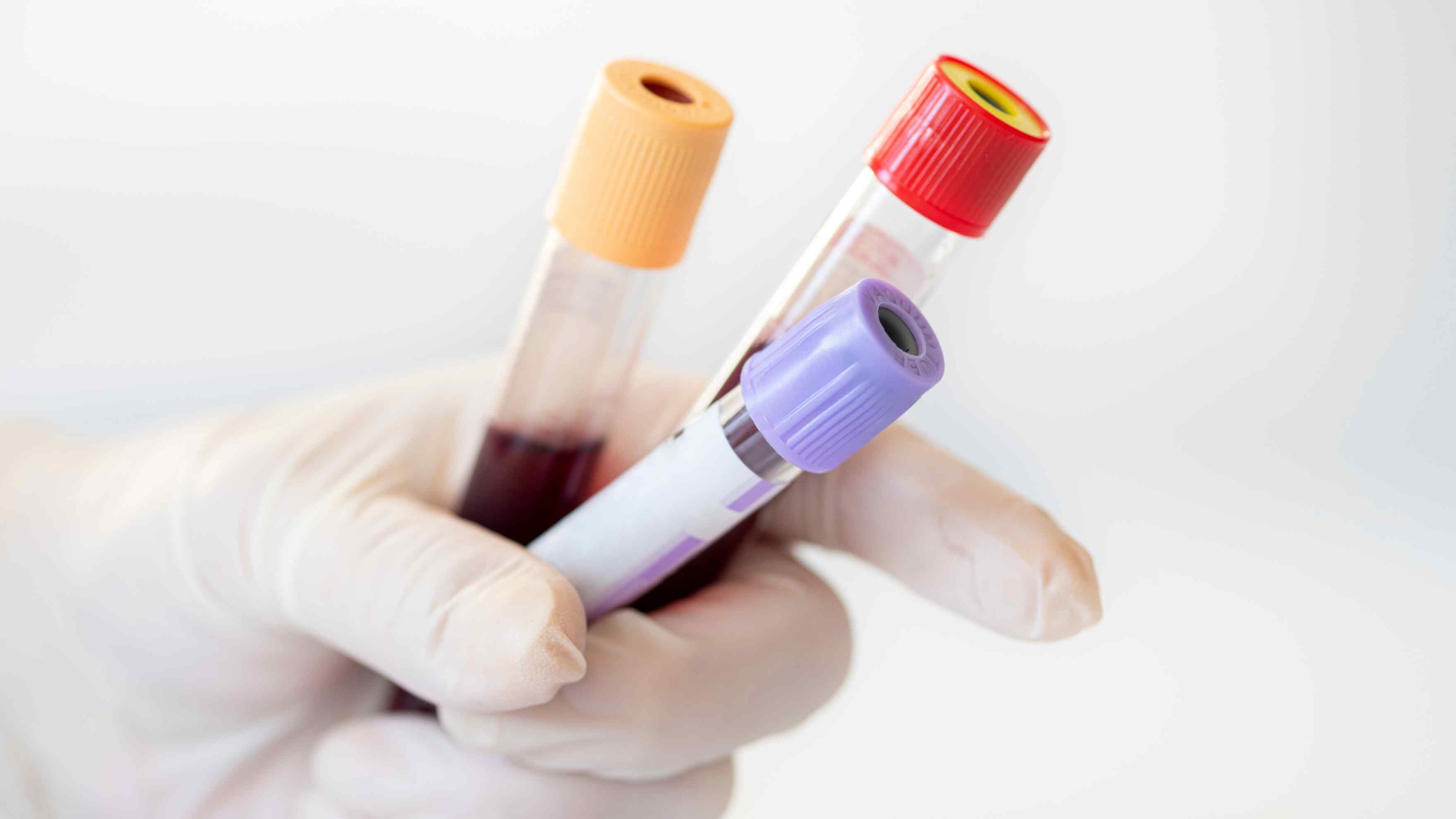
Cause: Chia seeds are rich in omega-3 fatty acids, which can have a natural blood-thinning effect.
Symptoms: Increased risk of bleeding or bruising, especially for individuals taking blood-thinning medications.
- Lowered Blood Pressure -
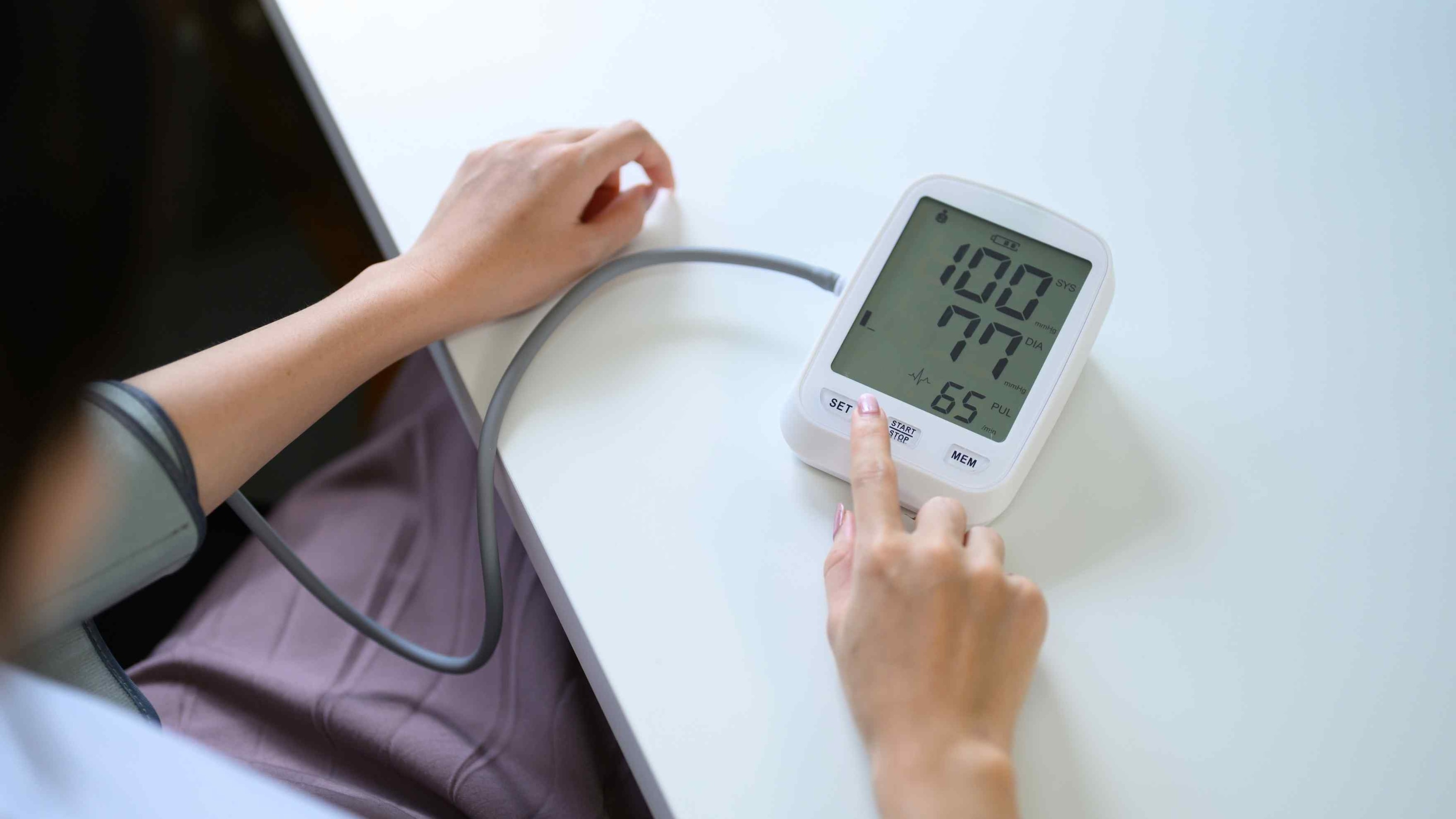
Cause: Chia seeds can help reduce blood pressure, which may amplify the effects of hypertension medications.
Symptoms: Light-headedness, dizziness, or fainting—particularly in individuals already on blood pressure-lowering drugs.
- Blood Sugar Fluctuations -
Cause: Chia seeds may lower blood sugar levels, which can intensify the effects of diabetes medications.
Symptoms: Shakiness, sweating, fatigue, confusion, or fainting—especially in individuals managing diabetes with insulin or other glucose-lowering drugs.
- Potential Drug Interactions -

Cause: Chia seeds may interact with medications for blood pressure, diabetes, or blood thinning, potentially altering their effectiveness.
Symptoms: Increased risk of side effects such as dizziness, excessive bleeding, or unstable blood sugar—especially when combined with related medications.
- Weight Gain Risk -

Cause: Overconsumption of chia seeds can contribute to excess calorie intake if not accounted for within a balanced diet.
Symptoms: Gradual weight gain, bloating, or feeling overly full—especially when consumed in large quantities without adjusting overall calorie intake.
- Mineral Absorption Issues -

Cause: The high fiber content in chia seeds may interfere with the absorption of essential minerals like iron and zinc.
Symptoms: Fatigue, weakened immunity, or signs of deficiency over time—particularly in individuals with already low mineral levels or restrictive diets.
- Digestive Blockage -

Cause: Excessive intake of chia seeds without adequate hydration can cause them to swell and potentially lead to intestinal blockages.
Symptoms: Abdominal pain, bloating, constipation, or difficulty swallowing—especially when dry seeds are consumed without enough water.
04How to Eat Chia Seeds Safely -
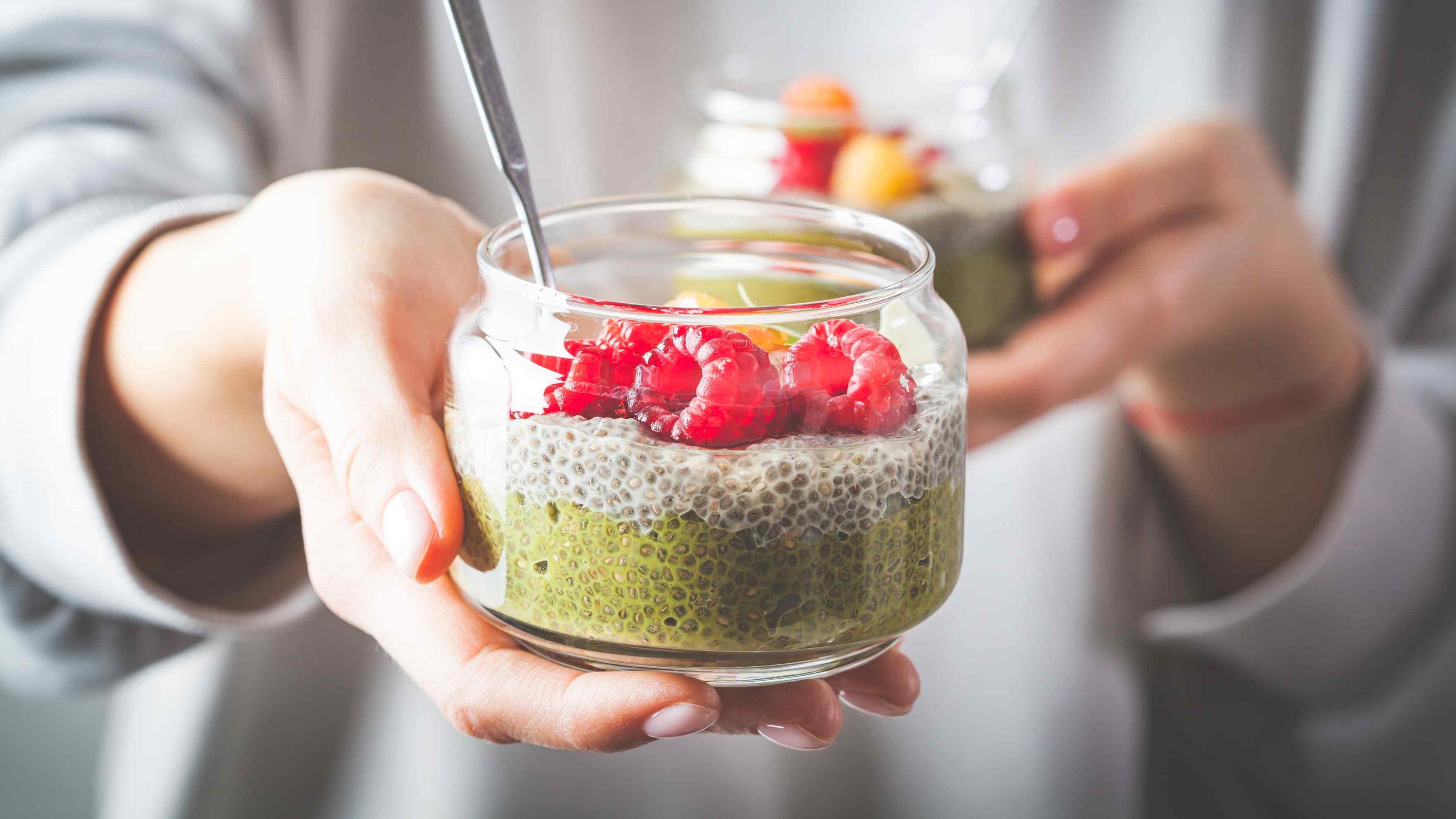
To minimize side effects and enjoy chia seeds benefits, follow these tips:
- Soak chia seeds in water or liquids for at least 10-15 minutes before consuming.
- Start with small amounts (1 tablespoon daily) and gradually increase.
- Drink plenty of water throughout the day to aid fiber digestion.
- Avoid eating dry chia seeds directly, especially if you have swallowing difficulties.
- Consult your doctor if you're on blood thinners, diabetes, or blood pressure medications.
- Incorporate chia seeds as part of a balanced diet, not as a sole nutrient source.
- Avoid excessive daily intake—stick to recommended portions.
05Who Should Be Cautious? -

Certain groups should be more mindful when consuming chia seeds:
- People with swallowing difficulties or esophageal issues.
- Individuals on blood thinning medications (e.g., warfarin).
- Those with low blood pressure or taking antihypertensive drugs.
- Diabetics monitoring blood sugar levels.
- Anyone with a known allergy to seeds or similar foods.
- People prone to digestive problems like IBS or chronic constipation.
Chia seeds are a nutritious addition to your diet, but like all superfoods, moderation and proper usage are key to enjoying their benefits without unwanted side effects.
06FAQs
Q: Is there any side effect of chia seeds?
A: Yes, overconsumption or improper use can cause digestive issues, allergic reactions, or interact with medications.
Q: How to eat chia seeds safely?
A: Soak them before consumption, start with small amounts, and drink plenty of water.
Q: Can chia seeds cause weight gain?
A: If consumed excessively without balancing calories, they can contribute to weight gain.
Q: Are chia seeds safe for everyone?
A: Generally yes, but certain people like those on blood thinners or with swallowing issues should be cautious.

